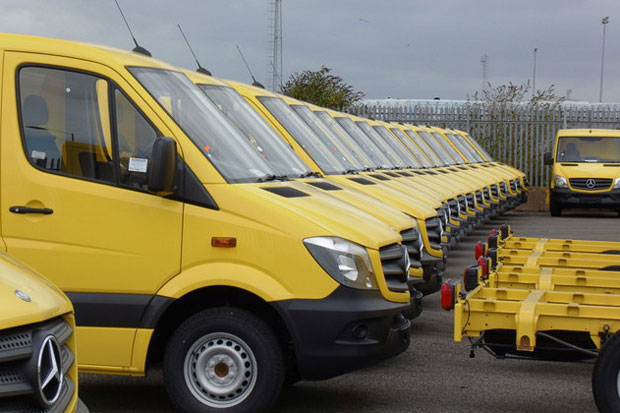23 June 2016
FTA condemns European moves to regulate LCV sector
Moves by the European Commission to impose HGV-like regulations on the light commercial van sector have been condemned.

The commission has launched a 12-week consultation (to 15th September) about changes to operator licensing that pose a range of questions about the way key pieces of transport legislation work and how they could be changed.
It is the first of three consultations impacting on the sector and among the key questions asked in the consultation are:
- Are the current rules fit for tackling ‘letterbox companies’ - businesses that set up in a low-cost country but conduct transport operations in a higher cost economy, using drivers paid at the lower level?
- Should the threshold for legislation such as operator licensing and cabotage - the haulage of goods for hire or reward in one member state by a vehicle registered in a different member state - that currently apply to vehicles used for hire or reward over 3.5 tonnes, be lowered and what implications would this have?
- Should the cabotage rule of ‘three operations in seven days’, following an international load, be amended to allow better enforcement?
The consultation also covers more general areas of operations and asks for views on the fact that, contrary to the present situation, operators using vehicles below 3.5 tonnes would have to comply with (part of) the requirements for access to the occupation of road transport operator (stable and effective establishment, good repute, financial standing and professional competence).
The Freight Transport Association (FTA) says effective enforcement of vans must come before new laws.
James Firth, FTA’s Head of Licensing Policy and Compliance Information, said enough legislation already existed to ensure van operators were safe and compliant.
He said: ‘Rules for vans already exist regarding roadworthiness, overloading, driver licensing and insurance, but no-one is out there enforcing them. Introducing new laws when there’s no enforcement simply means those who play by the rules are stuck with more costs while the cowboys carry on doing what they think they can get away with.’
The FTA highlights that it has been striving to help van operators shake off the ‘white van man’ image with its Van Excellence accreditation programme, which shares best practice, drives up standards of compliance, recognises excellence and represents the interests of the van industry.
The Van Excellence scheme has more than 100 members and Activa Contracts is a ‘recognised partner’ to the initiative.
Mr Firth said: ‘The operators who are Van Excellence members maintain their vans properly, run safe fleets and train their staff effectively - this shows that more rules are not the answer.’
Mike Hawes, Chief Executive of the Society of Motor Manufacturers and Traders, said: ‘We continue to urge operators and owners to comply with the law to keep themselves and others safe, avoid the risk of fines and keep the threat of further legislation at bay.’
The Department for Transport consulted earlier this year on proposals to generate more funds for enforcing against unsafe vans, but when the final strategy came out a few weeks ago there was no mention of it, the FTA pointed out.
The commission said in launching the consultation that an analysis of existing regulations revealed ‘certain problems in the road transport market’ and consequently it was considering whether policy intervention was justified to address those problems through an impact assessment exercise.

